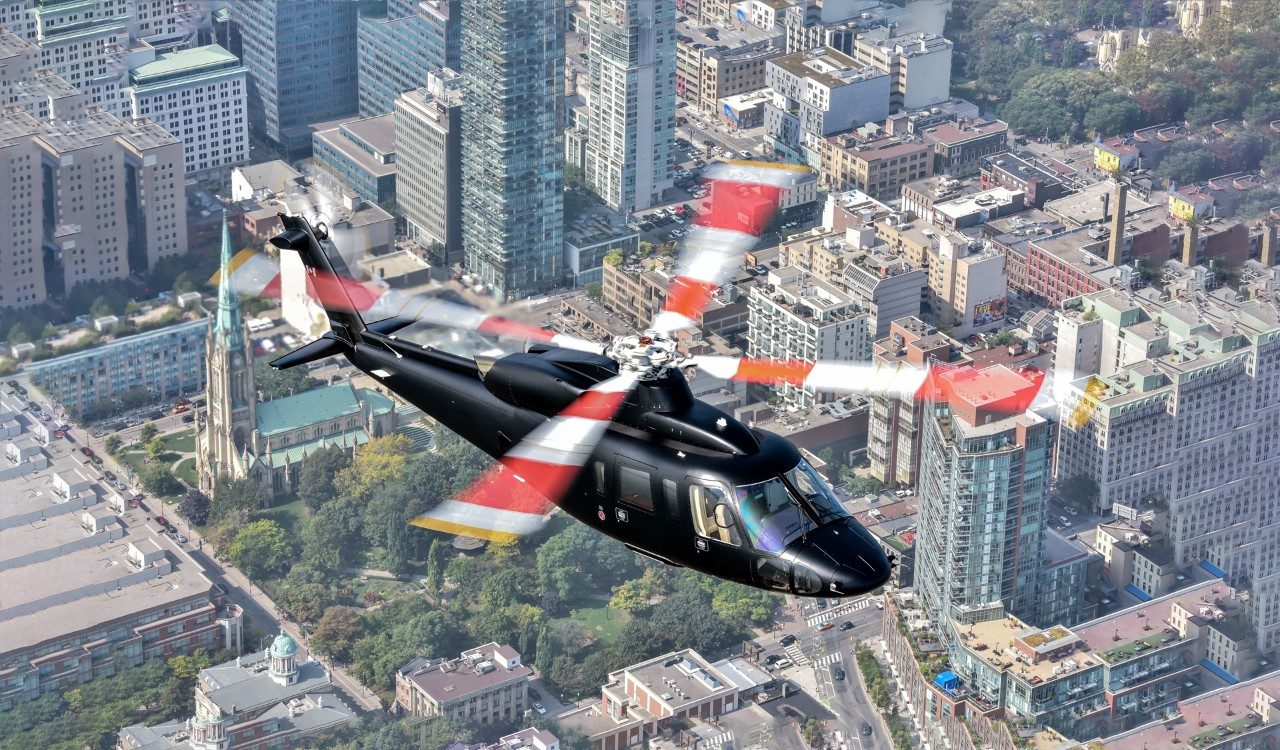Top US defense contractor Lockheed Martin and Indian conglomerate TATA Group have entered talks to manufacture an iconic military helicopter in India, according to Indian media reports.
According to India’s Times Now, New Delhi, coordinating efforts to bolster defense manufacturing in the country, was also in the loop. If a deal is signed, it will mark a significant milestone in India’s defense and aviation manufacturing.
As for Lockheed Martin, the manufacturer has been marketing its SR-76 Sikorsky chopper to the entire world.
If an Indian defense manufacturer starts producing the helicopter, it will be a shot in the arm for India’s ‘Make in India, for the World’ idea that has been continuously pushed by the higher echelons of the Narendra Modi government.

Even though the talks are reportedly in a very nascent stage, the two sides will eventually have to work out the number of choppers manufactured in India and the costs involved. It is speculated that if such a deal goes through, a sizable quantity of indigenous content will support smaller component producers.
The negotiations between Lockheed Martin and TATA for the SR-76 Sikorsky are also significant as they come just days after Tata Advanced Systems (TASL) and Airbus tied up to manufacture 40 military transport aircraft Airbus C295 in India.
A first-of-its-kind Make In India project for manufacturing military aircraft for @IAF_MCC, led by Airbus Defence and TATA consortium. The project's total cost is INR 21935 Crore.#InvestInIndia #MakeInIndia #C295 #IAFTransportAircraft @Bhupendrapbjp @makeinindia @CMOGuj pic.twitter.com/enwxJfl8Fb
— Invest India (@investindia) October 29, 2022
India’s reliance on defense imports will drastically decrease after Tata-Airbus begins producing military transport aircraft, which is anticipated to occur by 2026. Around 96% of the work will now be completed in the Indian factory, and the supply of the ‘Made in India’ aircraft will be finished between 2026 and 2031.
TATA, for one, has emerged as a very significant defense manufacturer with extensive reach and deep ties with International defense manufacturers. TATA already has a working relationship with Lockheed Martin and is a party to a couple of manufacturing programs with the giant.
If the Sikorsky agreement is finalized, it will tremendously bolster India’s flagship self-reliance program in defense and diversify New Delhi’s options in the face of limited and stymied military imports from Russia due to the ongoing war and supply chain-related issues.
The United States, on its part, has been making a case for India to reduce military dependence on Moscow. It is also noteworthy that even though the helicopter in the talks is the SR-76, it is intriguing that the Lockheed Martin Sikorsky S92 chopper had participated in tests for India’s heavy-lift helicopter requirement but did not enter the contest with an official bid.
The Make-In-India Push Riding on TATA’s Back
Currently, TATA produces parts for the C-130 transport plane and the wings for the F-16 fighter plane.
The C-130J Super Hercules is Lockheed Martin’s second-largest program in India and represents the first major military contract between the US and India in more than 40 years. All C-130Js supplied to customers worldwide feature important aero structure components built in India.
For its global supply of cabin aerostructures for the S-92 helicopter, Lockheed Martin depends on Tata Sikorsky Aerospace Ltd. (TSAL), a joint venture company between Lockheed’s subsidiary Sikorsky and TATA based in Hyderabad, India.
TSAL has shipped 154 cabins to Sikorsky’s S-92 assembly facility in the US since manufacturing started in 2010. Presently, TSAL supplies 100% indigenous Indian production of the more than 5,000 precision parts that make up each S-92 cabin.
Besides the Sirosky helicopters, Lockheed Martin has also been pitching its F-21 fighter jets to the Indian Air Force.
Lockheed even stated last year that if the IAF placed an order for 114 jets valued roughly at $18 billion under the MMRCA 2.0, the F-21 fighters would not be sold to any other country and promised to establish a maintenance, repair, and overhaul (MRO) facility in the country.
Late last year, William Blair, Vice President and Chief Executive of Lockheed Martin’s India business, repositioned the F-21 fighter plane and stated that the organization was in a perfect position to work with Indian players in industries like unmanned platforms, artificial intelligence, quantum computing, and machine learning, he continued.
Numerous enterprises in India have been drawn in by the country’s significant capital spending on defense, facing a twin threat on two of its borders. Several nations are lining up to work with emerging homegrown firms in India to share in India’s defense output.
India’s defense offset policy requires foreign companies to collaborate with local vendors for defense manufacturing, research, design & production. Further, early partnerships help companies get contracts as their operational efficiency is more in line with minute details of the process.
- Contact the author at sakshi.tiwari9555@gmail.com
- Follow EurAsian Times on Google News